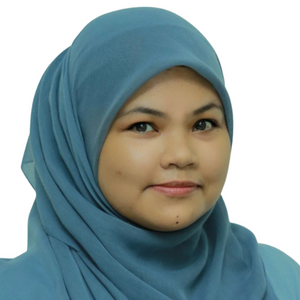Little pilgrims: Pure hearts learn fifth pillar of Islam through haj simulation
The programme held at the Tuanku Mizan Zainal Abidin mosque in Putrajaya on June 12 was designed to teach children about the fifth pillar of Islam with a carefully orchestrated blend of education and play.
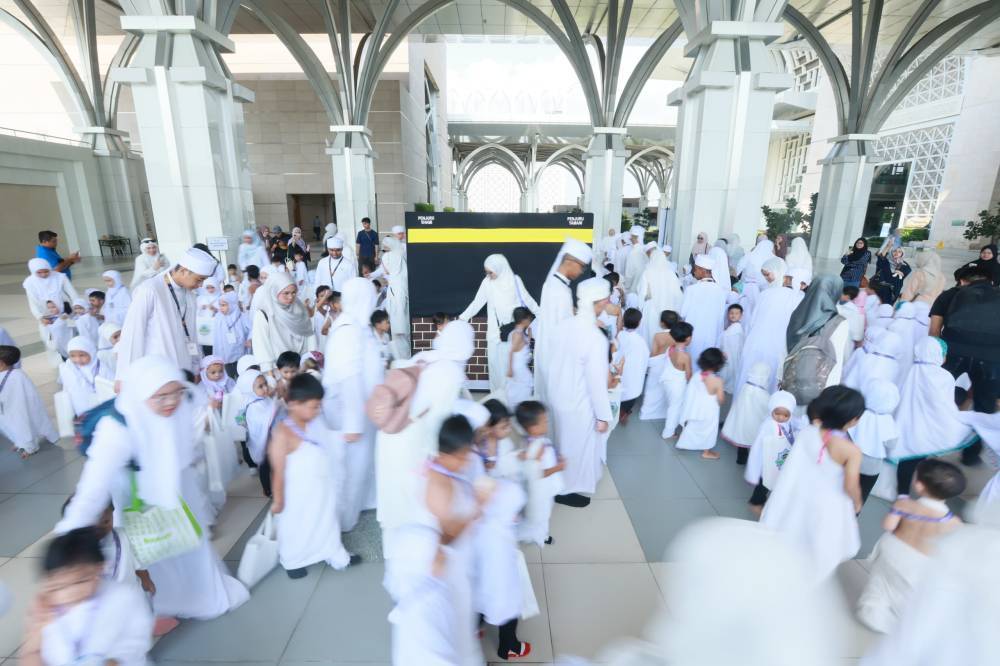
PUTRAJAYA - Dressed in their white ihram and telekung, while holding their pretend passports, preschoolers and playschoolers light up with excitement and curiosity as they embark on a unique journey, a haj simulation.
This was not just a regular school trip for them as they get to learn about the significance and meaning of haj, an important part of their faith as Muslims.
Through the "Kembara Haji 2024" haj simulation programme organised by childhood education and development centre Koolkidz Academy, the children experienced a hands-on approach of the sacred rituals of haj.
The programme held at the Tuanku Mizan Zainal Abidin mosque in Putrajaya on June 12 was designed to teach children about the fifth pillar of Islam with a carefully orchestrated blend of education and play.
The meaningful programme was attended by a total of 280 children from the age of two to six from nine Koolkidz Academy branches in Selangor and Putrajaya, along with their teachers and students from the Maahad Habibullah Al Hafiz religious school who acted as the mutawwif guides.
Haj comprises several rituals which are meant to symbolise the essential concepts of the Islamic faith and to commemorate the trials of Prophet Ibrahim AS and his family.
Other than circling a replica of the Kaabah in the tawaf Ifadah ritual, the children were also taught how to wear ihram clothing, perform the wuquf at Mount Arafat, the stay at Muzdalifah and Mina, perform the jamrah where they threw pebbles at a wall during a practice version of the "stoning of the devil", saei and tahallul.
Koolkidz Academy founder Shariffah Asdalina Habib Ahmad said the programme was the third of its kind since it was introduced in 2022.
"The haj simulation programme is an annual event, now in its third year, but this was the first time it was held outside the school premises. Previously, the programme was held at the schools’ compound.
"Koolkidz Academy was established five years ago and we have 25 branches in total," she told Sinar Daily during the programme.
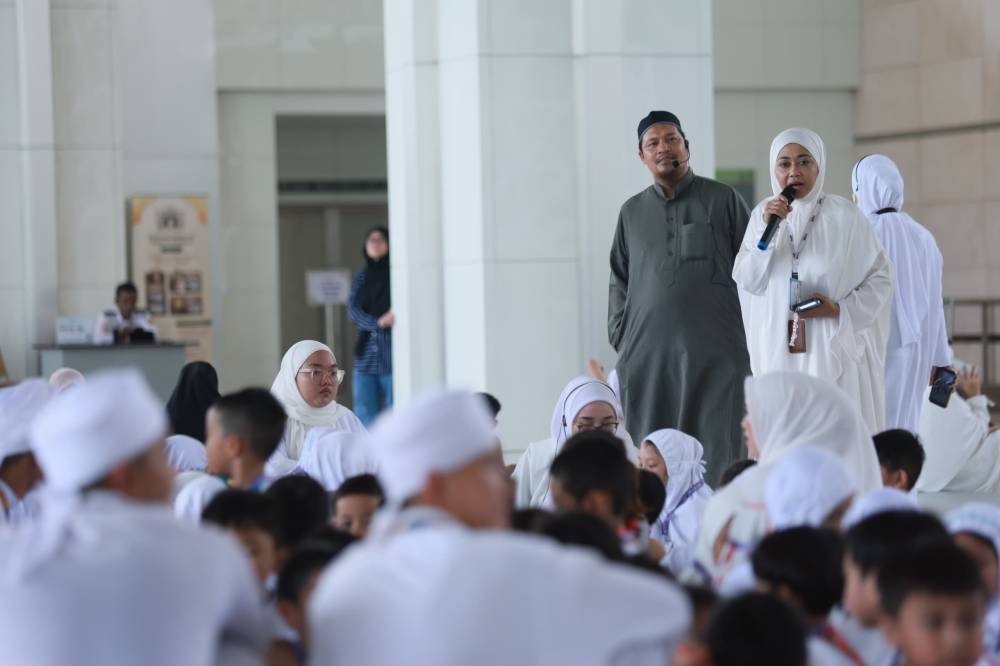
In ensuring the children’s comfort and safety, Shariffah, fondly known as 'Mama Pah' among her students said the mosque was chosen as the venue to conduct the event to prevent the children from prolonged exposure to heat.
This, she said was given the high temperatures which are dangerous, especially for children.
She said the centre took into account cases of heatstroke, including cases where children fainted, tragically died or became persons with disabilities (PwD) due to heatstroke.
"It is our top priority to ensure the children’s comfort and safety given the intense heat.
"Ideally, we would want it to be conducted in an air-conditioned space, but to provide a realistic haj experience, we chose the mosque's shaded courtyard because we still want them to experience what the weather would be like while performing haj.
"We also held discussions with the mosque's administration to ensure the environment was safe and controlled," she added.
She said the decision to hold the event in Putrajaya, despite Shah Alam being closer to most branches, was intentional.
This, she said was because she wanted the children to experience the sense of travel that haj entails.
"By giving them mock boarding passes, we simulated the journey aspect of haj. The distance travelled helped them appreciate the commitment required for such a pilgrimage," she said.
Reflecting on the children's experience, Shariffah said she hopes that the children will have a lasting memory of what haj is and understand its importance.
She said this was not just about the rituals, but also about instilling a deeper sense of faith in these young and pure hearts.
"My biggest hope is that while the children might not fully understand the significance (of haj) yet, at least they can share their experiences during the programme with their parents when they get back home.
"For instance, they might say, 'Mama, today we threw stones' or 'teacher cut my hair' (during the tahallul).
"These activities are symbolic and even if they grasp just a part of it, it is a significant achievement.
"One day, when their time comes to perform haj, these memories will come back to them," she said.
A total of 14 students aged between 13 and 18 from Maahad Habibullah Al Hafiz acted as the mutawwif guides for the children.
This was the first time the religious school involved its students in the practical exercise.
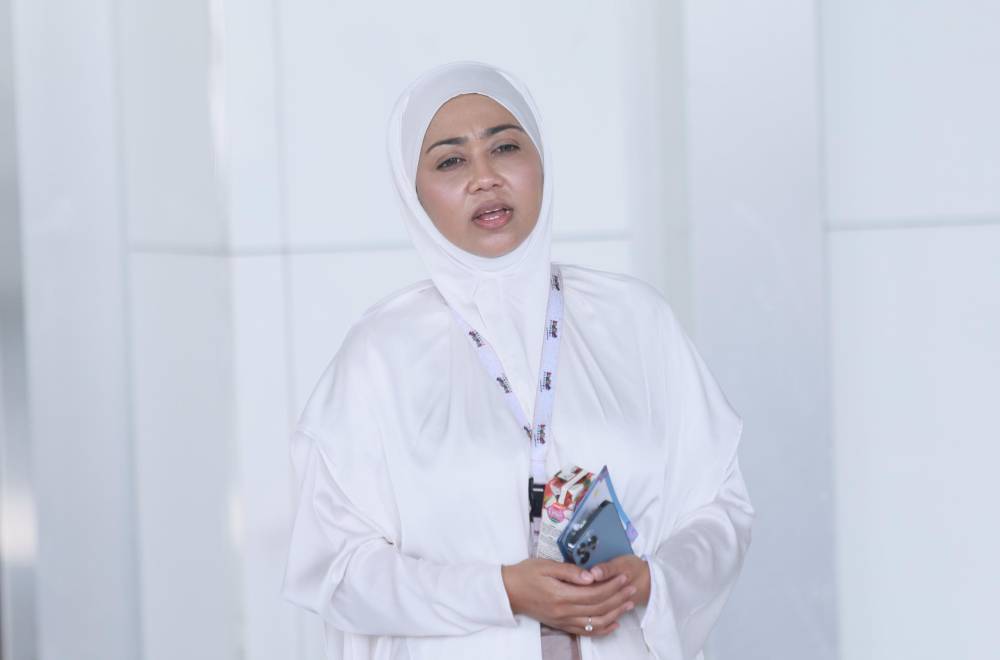
Sharing his observation of the programme, the school’s principal Mohammad Sabri Mohd Nor said the programme ran smoothly, although it was a bit challenging for his students as they were dealing with children.
He said the school usually provides haj and umrah guidance to adults.
"The students were surprised when they were told that they were going to practice with preschoolers, but they managed to handle the situation well.
"They just need to recite the duas slowly so that the children can follow along and repeat the exercise until the children could understand what they need to do," he said.
Meanwhile, sharing her insights on the programme, Nur Farhana Samadi, 35, who operates the Koolkidz Academy playschool and preschool centres in Eco Grandeur, Puncak Alam said the children were generally excited in participating in the haj simulation.
She said the programme aimed to expose little ones to the practices and significance of haj in Islam.
"Most of them (children) were excited, but there were also those who had mixed feelings. Some even cried when they saw their parents.
"Usually, when the parents are not around, it is easier to manage the situation as the children tend to be calmer, but we managed to comfort the kids who were crying and as soon as they felt better, they continued with the activities in the haj simulation," she said.
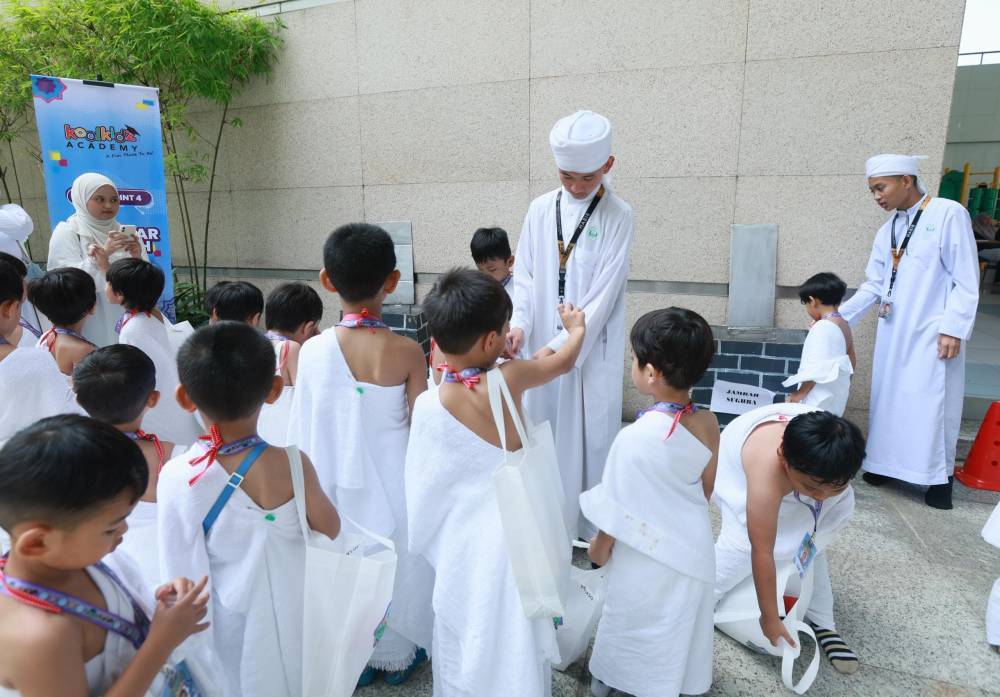
She said the main objective of the programme was to give the playschool children exposure to haj rituals through the activities while focusing on practical activities for the preschoolers.
The haj simulation, she said provided a safe and educational environment for the children to explore the fifth pillar of Islam, making it a memorable experience for both the children and the teachers.
"We hope the children could learn a little bit about haj and understand its importance in Islam," she said.
Farhana who runs the centres with her husband Muhammad Nadhar Borhan, 35, said the programme's timing was well-organised, although it took some extra effort due to the children's young age.
"We had to be more careful with the playschool children because they are still very young. The preschoolers were a bit easier to handle as they were more independent.
"Overall, everything went smoothly and safely," she added.
